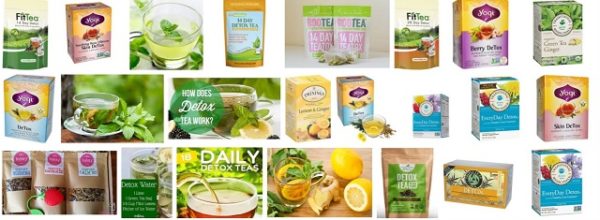
 The detox trend is truly everywhere. That means so is the detox myth.
The detox trend is truly everywhere. That means so is the detox myth.
Look around: you’ve got your herbal detox teas, your 30-day detox yoga programs. There’s colonic irrigation for the inner you, detox creams, shampoos and makeup for the purified outer you. And, of course, there’s the omnipresent detox juice cleanse, sold as guaranteed to flush out those toxins and make your organs squeaky clean again.
Yet, health experts have long ago revealed the detox claim to be a myth, a piece of pure marketing mania and misinformation. So how has the trend not just survived but flourished, pushing its way past the truthiness to become part of our everyday product vocabulary, as recognizable as low-carb and fat-free?
Last fall, two smallish companies in Western Canada joined forces to become, in their words, “the most influential player in the cold-pressed juice and nutritional grab-and-go market” out West.
Victoria-based Jusu Bars Inc. and its fleet of juice shops acquired Calgary-based Cru Juice Inc., expanding Jusu’s reach and, in Jusu founder and CEO Bruce Mullen’s words, “helping people avoid the ever increasing lifestyle diseases that are afflicting ourselves, friends and families.”
While the company may have miles to go before competing on a level with Canadian juice juggernauts like Booster Juice and Jugo Juice, their aspirations are fitting of these heady times in the juice and smoothie market, one driven by the younger and emerging generations who now have the disposable income to spend on the upscale, purportedly healthy drinks.
So-called trailing millennials, those Canadians between 18 and 24 years old, are big consumers of the products, says Kathy Perrotta, vice-president at polling company Ipsos Reid.
“They drink more than their fair share of smoothies,” says Perrotta, who points out that a full 21 per cent of smoothie drinkers in Canada are from this age bracket. “They are concerned about health and fitness and try to avoid artificial ingredients, but at the same time, they want to drink beverages that taste good.”

In fact, juices and smoothies aren’t all that healthy. Better than a chocolate fudge sundae, of course, but the high sugar content, high calorie count and relative lack of fibre make for a shock to the system.
“You’re thinking, ‘Wow, I just drank all the fruits and vegetables I need for a day,’” says Cara Rosenbloom, registered dietician. But many smoothies are made with fruit concentrate, which “doesn’t count as a serving of fruit; it’s just plain sugar.”
But it’s the more lofty claims from the raw, cold-pressed juice cleanse and detox market that really have health experts and nutritionists peeved. And they’re everywhere. “A juice cleanse is a great way of detoxifying your body,” says Green Press, a Toronto-based company with eight stores around the GTA. “Put very simply, it’s like hitting your body’s reset button,” says the Juice Truck in Vancouver.
And again, with their loads of kale, celery and other goodies, raw and cold-pressed juices aren’t the problem —it’s the detox claim.
Back in 2014, the Guardian ran an oft-quoted piece in which Exeter University complementary medicine professor Edzard Ernst brought the hammer down on the detox idea. “Let’s be clear,” said Ernst, “there are two types of detox: one is respectable and the other isn’t.” The respectable one, he said, is the medical treatment of people with life-threatening drug addictions. “The other is the word being hijacked by entrepreneurs, quacks and charlatans to sell a bogus treatment that allegedly detoxifies your body of toxins you’re supposed to have accumulated,” said Ernst.
In fact, the body is a living, breathing toxin-removal machine and it will keep up the process, regardless of how much kale and cucumber you throw at it.
“The liver is incredibly efficient at getting rid of noxious substances,” says Dr. George Dresser, a toxicologist, pharmacologist and internal medical specialist at Western University in London, Ontario, to CBC News. “The kidneys do a great job at eliminating many toxins that are soluble in water. So we have what we need now.”

So, why, then, does the detox myth persist?
The detox claim is alluring because it’s as old as time. Purification rites and fasts are a part of almost every culture throughout history, particularly potent in the Judeo-Christian tradition where the body and bodily pleasures have been variously interpreted as impure and an impediment to spiritual salvation. The 40-day period of Lent, after all, is said to be a time of repentance and reflection, traditionally observed through the giving up of material goods and, notably, fasting.
In more modern times, the idea of our bodies as machines — ones that can get gunked up and be in need of regular cleaning — has become common, too, despite the protests of scientists and health practitioners.
Moreover, it’s the persistence of the detox idea even against the claims of science that is most revealing, says Timothy Caulfield, law professor at the University of Alberta, whose research has focused on the impact of celebrity culture on the public’s perception of science.
“Cleansing has semi-religious connotations,” says Caulfield, to the Telegraph. “It’s as though toxins have become Hollywood’s modern day evil spirits and we need to find a way to rid ourselves of those toxins.”
“The public has lost a lot of trust in science lately,” Caulfield adds, “to the extent that in the US people are talking about ‘The War on Science’. You see it at the GMO (genetically modified organisms) and vaccination debates.”
And so, with these kinds of roots in our public consciousness, veggie juices, cleanses and the detox myth may be sticking around for a while yet.
Leave a Reply
You must be logged in to post a comment.



 Share
Share Tweet
Tweet Share
Share




Comment